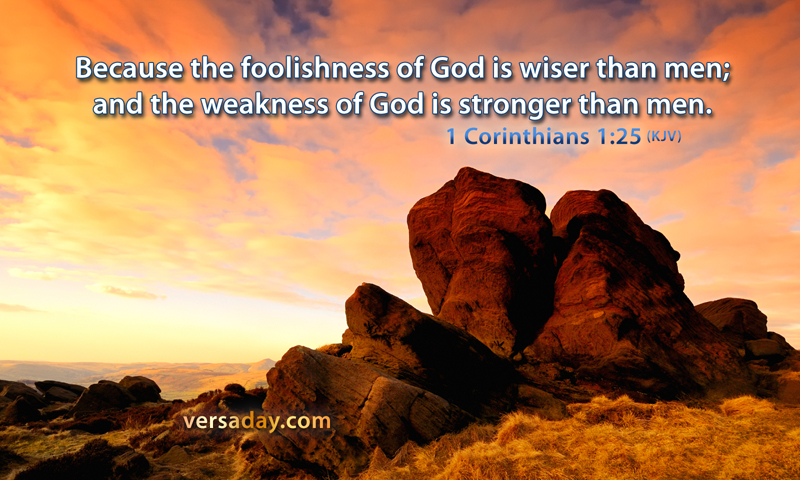
Lately I’ve been reading 1 Corinthians, and I struggle a bit with some of what Paul says in chapter 1 and 2. Let me quote a few verses:
1 Cor 1:20 Where is the one who is wise? Where is the scribe? Where is the debater of this age? Has not God made foolish the wisdom of the world? 21 For since, in the wisdom of God, the world did not know God through wisdom, it pleased God through the folly of what we preach to save those who believe. 22 For Jews demand signs and Greeks seek wisdom,23 but we preach Christ crucified, a stumbling block to Jews and folly to Gentiles, 24 but to those who are called, both Jews and Greeks, Christ the power of God and the wisdom of God. 25 For the foolishness of God is wiser than men, and the weakness of God is stronger than men.
…
1 Cor 2:1 And I, when I came to you, brothers, did not come proclaiming to you the testimony of God with lofty speech or wisdom. 2 For I decided to know nothing among you except Jesus Christ and him crucified. 3 And I was with you in weakness and in fear and much trembling, 4 and my speech and my message were not in plausible words of wisdom, but in demonstration of the Spirit and of power, 5 so that your faith might not rest in the wisdom of men but in the power of God. (ESV)
On one level, it seems to me that Paul’s own ministry somewhat contradicts the literal claims he is making here. When Paul is preaching, in Acts 13 or 17 or elsewhere, or is writing, he does present himself clearly and eloquently. Romans is very well structured and organised…does that not count as ‘lofty speech’ or ‘plausible words of wisdom’? Paul himself was trained as a Pharisee and is clearly well educated. Does he not engage in debates and discussion? He is able to hold his own with the philosophers of Athens, the premier connoisseurs and seekers of wisdom in the ancient world.
These claims also seem to threaten much of what I do. Among other subjects, I teach communication, including research, writing skills, and argumentation, as well as philosophy — the study of ‘wisdom’. Much of what I do is focused around improving writing (the work of ‘scribes’), or debating — making arguments more like ‘plausible words of wisdom’. We spend an entire semester looking at how wisdom has been understood, both among Christians and non-Christians, as we explore the field of philosophy. And in many ways I believe these pursuits are valuable and important. Surely Paul is not saying that sermons should be delivered without preparation, or that we should not bother to organise our thoughts as we defend the gospel and present our theology. We are meant to be able to ‘rightly divide the word of truth’ and understand the meaning and content of the gospel.
Yet on a deeper level, I believe this is a warning to me — and to all those who could be tempted to rely on their own academic prowess or intellectual ability. Knowing the gospel is no substitute for living out the gospel. Academic work is not the most important criteria of the Christian faith. Without the power of the gospel, all the speech, wisdom, and plausibility of your message accomplishes nothing. Without the foolishness of the cross, all the education and wisdom you could ever accumulate means nothing. So even as I seek to teach and develop these skills, the foundation must be there, and the focus must be upon the gospel and building the kingdom of God.
I have been thinking about this in relation to TESOL too, and I think it can be applied to a lot of academic fields – that tension between knowledge for prestige or knowledge for practical transformation. I agree with you; I don’t think He calls us to deny knowledge or seeking truth, but we have to do the right things with our knowledge. Are we using our knowledge to build others up and grow closer to Him? Is love the motivation behind our quest for knowledge? Or do we just want others to be impressed with us? Do we allow our knowledge to dull us to our need for Him? All important questions to keep in mind as we study and teach because the line can so easily be crossed.